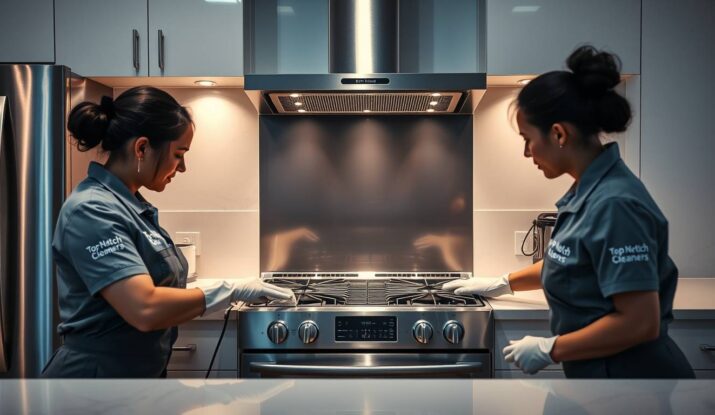
What Landlords & Real Estate Agents Look For
The Complete Kitchen Cleaning Checklist
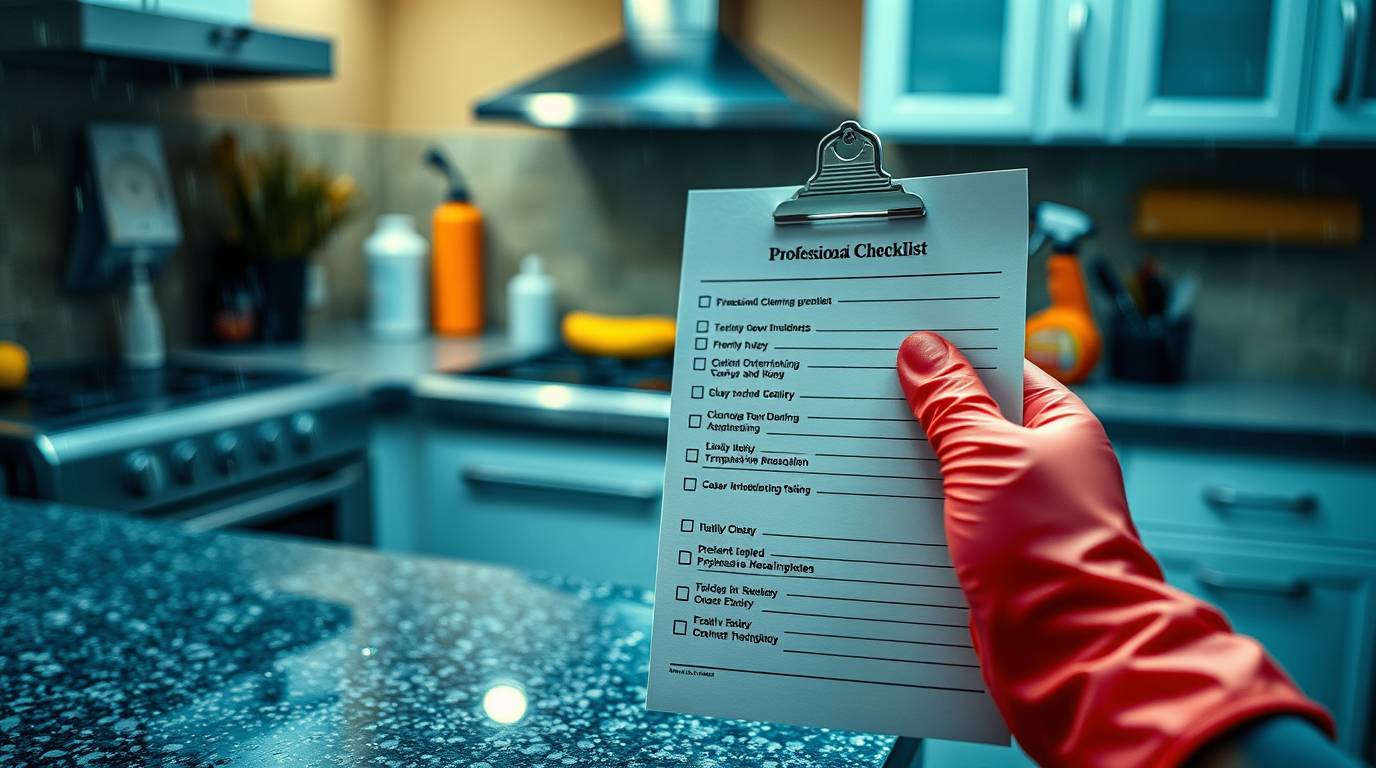
When you’re preparing for an end-of-tenancy inspection, the kitchen needs more than a surface wipe. This cleaning checklist will help you hit all the key areas landlords and agents will cheque:
Oven and Stove
- Remove racks and soak in hot, soapy water
- Scrub away burnt-on grease and food
- Clean behind knobs and under burners
Rangehood and Filter
- Take out filters and soak in degreaser
- Wipe the fan blades and outer casing
- Cheque for trapped dust or oil residue
Sink, Taps, and Drain
- Descale around taps and polish the fixtures
- Clear any clogs in the drain
- Use baking soda to remove smells
Cabinets (Inside & Outside)
- Empty every cupboard and drawer
- Wipe inside corners, handles, and shelves
- Remove crumbs, grease, and stains
- Floors, Splash backs & Countertops
- Mop the floor with a degreaser
- Wipe splash backs clean of splashes and oil
- Disinfect countertops and edges
A clean kitchen speaks for itself. Stick to this checklist, and you’ll have one less thing to worry about during inspection.
Oven Cleaning
The oven is often the first thing an inspector checks—and one of the hardest to get right.
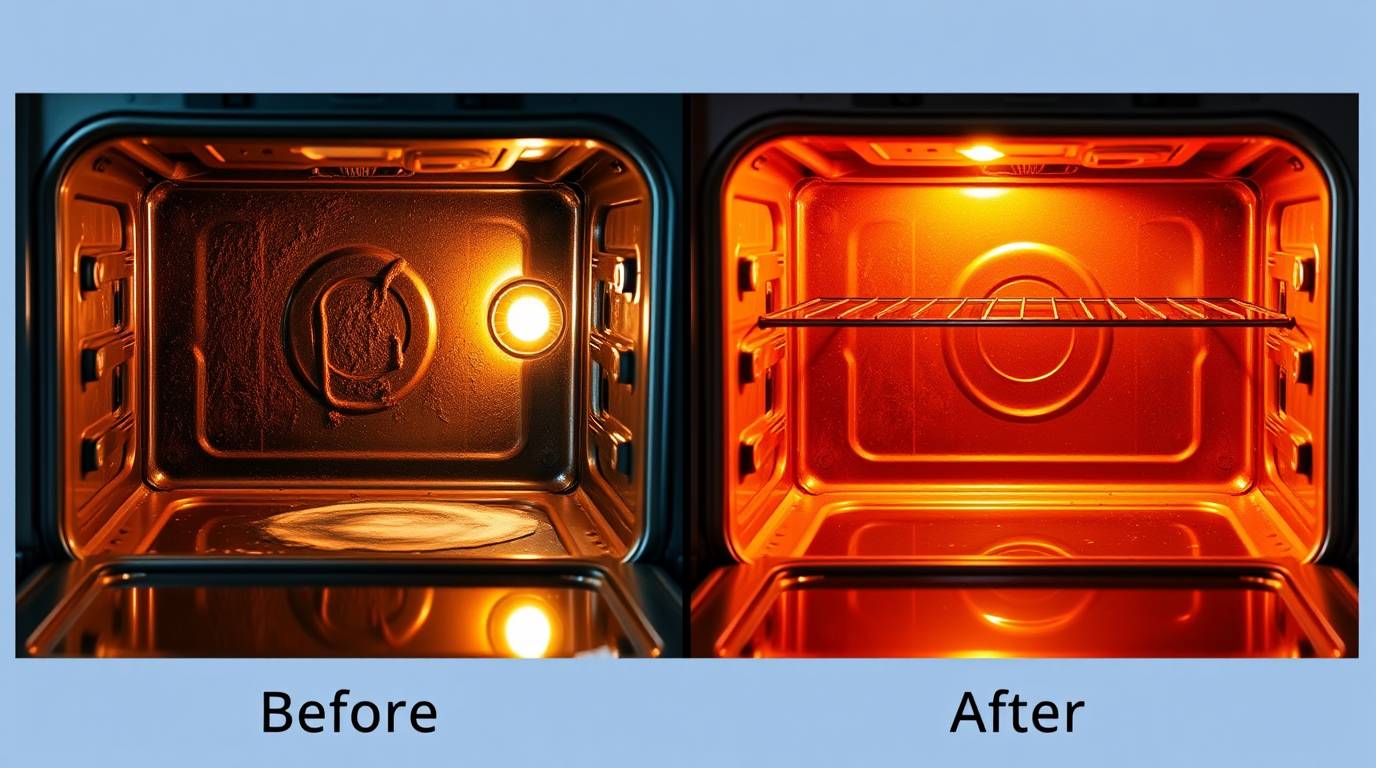
Tackle Baked-On Grease
Start by heating the oven slightly, then switch it off. This softens stuck-on grease. Scrape gently with a plastic tool and use a strong degreaser or a paste made from baking soda and water.
Clean the Racks
Take the racks out and soak them in hot, soapy water for an hour. Use a scrubbing brush or steel wool for any stubborn residue.
Natural or Store-Bought?
Natural options like baking soda and vinegar are safe and effective, especially for light grime. For heavy buildup, a commercial oven cleaner will save time—but use gloves and follow all safety instructions.
A spotless oven can tip the inspection in your favor.
Stovetop Cleaning
A clean stovetop shows you’ve kept the kitchen in good shape—and can help avoid deductions during inspection.
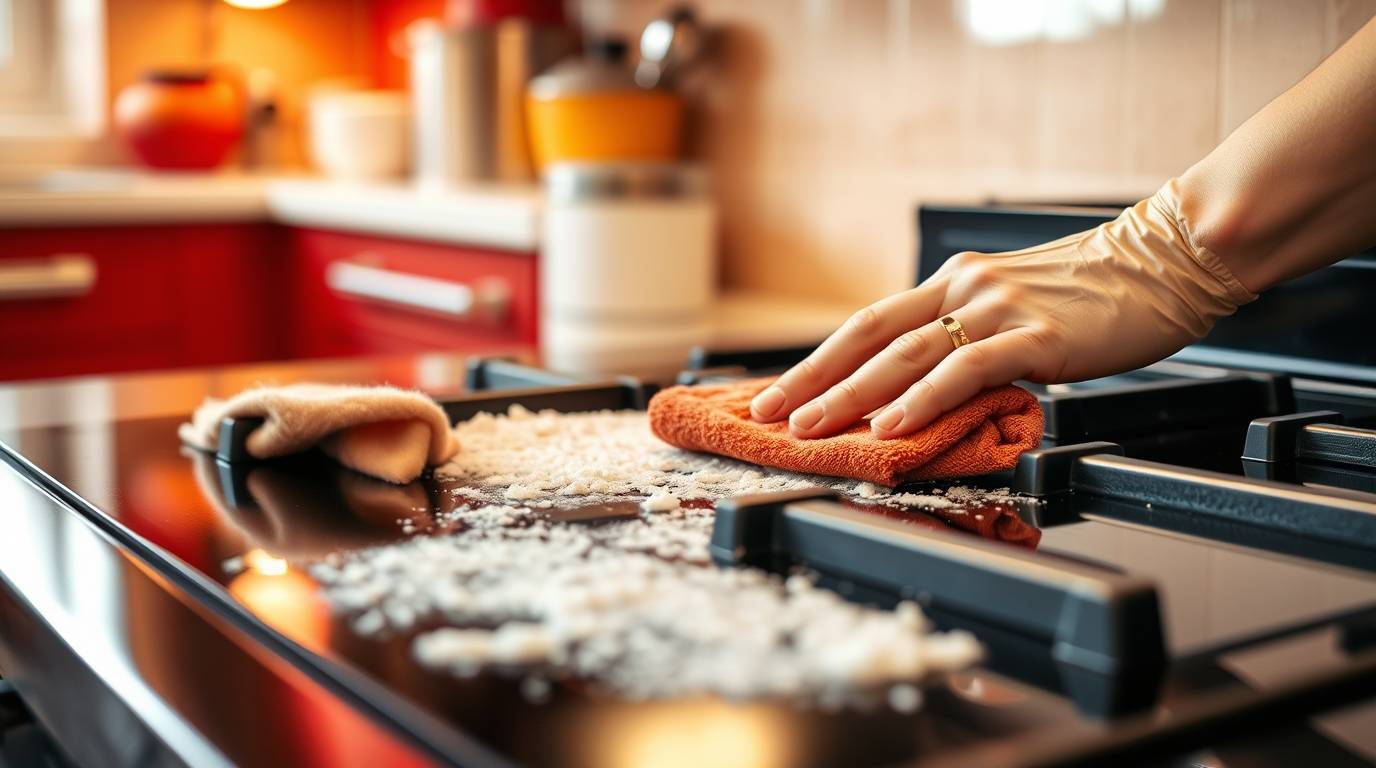
Kitchen Cupboards & Drawers
Sink & Tap Descaling
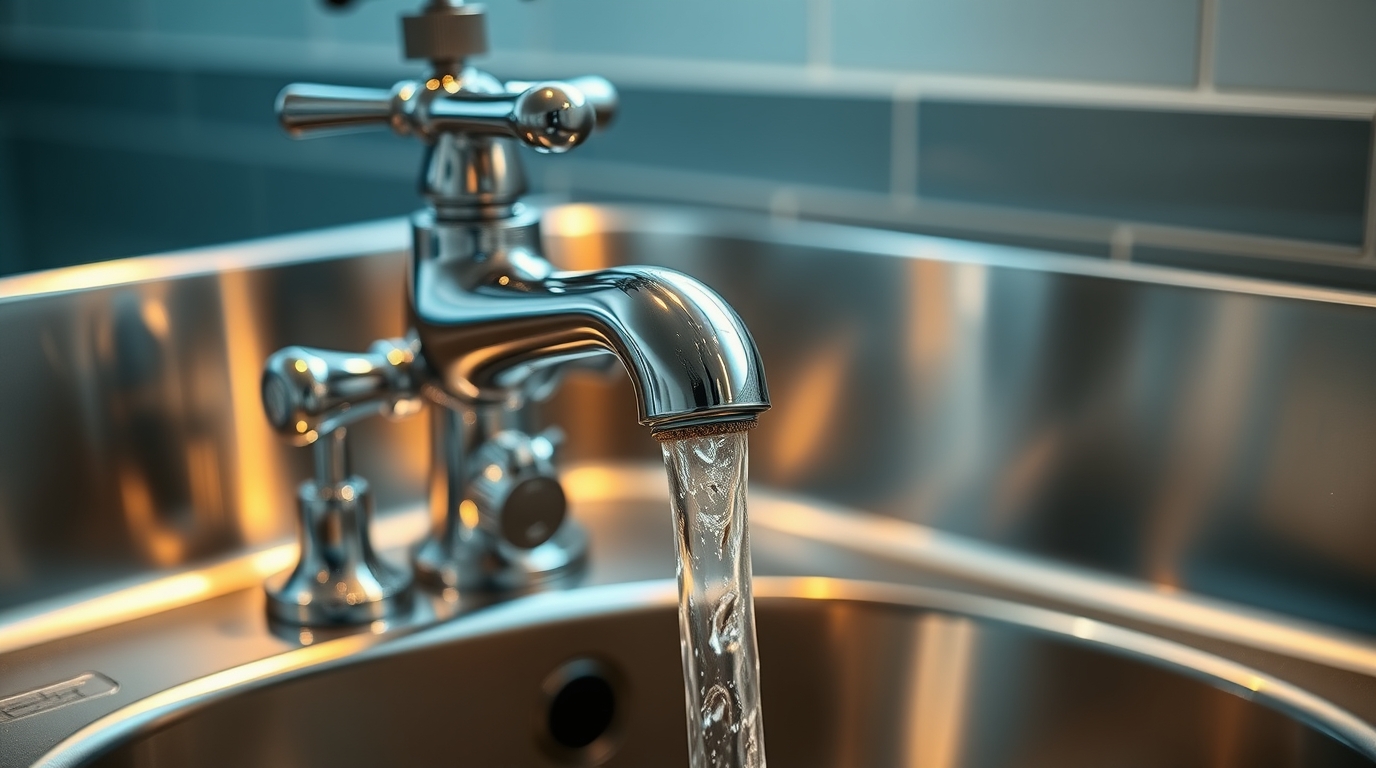
A sparkling sink and taps make a big difference during an inspection.
Removing Limescale & Buildup
DIY vs Hiring a Pro: What Should You Do?
Choosing between doing it yourself or hiring a professional depends on several factors.
Time and Effort Involved
DIY cleaning can take hours, especially when it comes to deep cleaning the kitchen. It requires attention to detail and energy.
Cost Comparison
While doing it yourself saves money, it may not give the same quality results as a professional. Hiring a pro may cost more upfront but could save you time and stress.
When It’s Worth Paying for Help
If you’re short on time or need to ensure a spotless kitchen, professional cleaners are your best bet. They can handle tough stains and grease, and help ensure your bond return.
How Long Does Kitchen Cleaning Take?
The time needed for kitchen cleaning varies.
Estimate for DIY Cleaning vs Professional Job
For DIY cleaning, it might take anywhere from 3 to 6 hours, depending on how thorough you want to be. Professionals can usually complete the job faster, often within 1.5 to 3 hours.
Depends on Kitchen Size and Condition
A larger, more cluttered kitchen may take longer to clean, while a smaller kitchen will require less time.
Typical Timeframe Tenants Should Plan For
It’s important to allow enough time, usually 3-4 hours, for a complete cleaning if doing it yourself, or hire a pro for a quicker job.
What Your Tenancy Agreement Says About Cleaning
Your tenancy agreement often outlines cleaning responsibilities.
Legal vs Expected Cleaning Responsibilities
While the tenant is generally responsible for cleaning, agreements often specify professional standards for the end of tenancy. It’s crucial to follow these guidelines.
Clauses to Look for About “Professional Standard”
Look for any clauses that mention cleaning requirements. Landlords often expect a “professional standard” of cleanliness, especially in kitchens.
Final Thoughts: Your Responsibilities as a Tenant
When moving out, the final sweep of your kitchen can have a big impact on your bond return.
Final Sweep of What You Need to Do
Before handing over the keys, make sure all surfaces are spotless. This includes wiping down the oven, stovetop, sink, and all cabinetry. Don’t forget to remove any grease, grime, or limescale that may have built up.
Being Smart, Prepared, and Bonded
Being prepared for your inspection ensures you leave on good terms with your landlord. Remember, the more thorough the cleaning, the more likely you’ll get your bond back in full.
Frequently Asked Questions (FAQ)
Do I really need to do end-of-tenancy cleaning?
Yes. A clean property is often required by your tenancy agreement and is crucial for getting your full deposit back.
Should I clean the property myself or hire professionals?
If the place is lightly used and you're confident in your cleaning skills, DIY can work. Otherwise, hiring professionals may be worth it to avoid deposit deductions.
What are the most commonly missed spots when cleaning?
Tenants often forget behind furniture, inside cupboards, and inside appliances like the oven and fridge—these can be deal-breakers during inspection.
When should I start cleaning before moving out?
Start at least 4 weeks before your move-out date to avoid last-minute stress and ensure everything is cleaned thoroughly.
Let Us Handle the Hard Work
Make sure your kitchen shines before the inspection with help from Top-Notch Cleaners.
We deep clean every corner—inside the oven, behind the hob, under the sink—so nothing gets missed.
Book your professional clean today
Our expert team will make sure your kitchen passes inspection with flying colors.
Click to book now or give us a quick call –
Contact with us and Book Now


